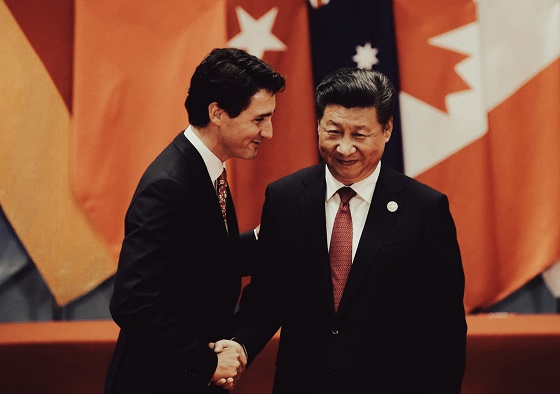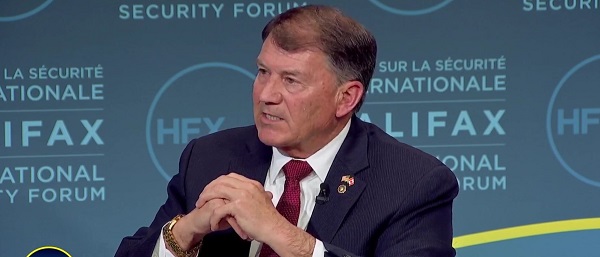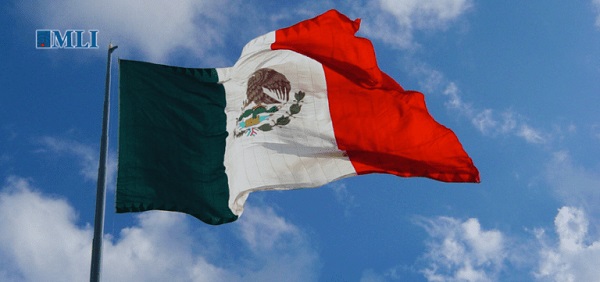espionage
Scathing Report Reveals How Deadly Pathogens and Sensitive Research Walked Out the Door Under Justin Trudeau’s Watch

And here’s the ultimate shock: Dr. Qiu and Mr. Cheng were not arrested or detained. They were not prosecuted for espionage or national security violations. Instead, under the watchful eye of Justin Trudeau’s government, they were allowed to simply leave.
Imagine for a moment that Canada’s top research lab, handling the most dangerous pathogens in the world—Ebola, Henipah, you name it—was left wide open to foreign actors. Not just any foreign actors, but researchers with direct links to the Chinese Communist Party, its military, and its notorious Thousand Talents Program, which is designed to poach foreign research for China’s own strategic and military gain. It sounds like something out of a bad spy thriller, right? But it’s not fiction; it’s happening in Canada, and no one in Ottawa seemed interested in sounding the alarm.
As detailed in the newly released Interim Report of the Special Committee on the Canada–People’s Republic of China Relationship, titled The Nexus Between Science and National Security in Canada: The Case of the National Microbiology Laboratory in Winnipeg, what we’re seeing is an astonishing lapse in oversight and a clear failure by the Canadian government to protect its own assets. Under the chairmanship of Ken Hardie, this committee has exposed one of the most significant threats to Canada’s national security in recent years. And yet, it’s clear from Ottawa’s inaction that they’re more concerned about diplomacy than defending the integrity of Canada’s scientific research.
Here’s the story: Dr. Xiangguo Qiu and her husband Keding Cheng, both highly placed researchers at Canada’s National Microbiology Laboratory (NML) in Winnipeg, were discovered to have sent live samples of deadly pathogens to the Wuhan Institute of Virology. Yes, you heard that right—the same lab in China where U.S. officials raised concerns about safety standards, the same lab with ties to China’s military bio-defense programs. The duo apparently facilitated the transfer of these dangerous viruses, without ever informing their Canadian superiors of their deep, undisclosed ties to the Chinese Academy of Military Medical Sciences. And instead of acting immediately, Canada’s Public Health Agency dragged its feet for nearly 18 months, leaving these individuals with full access to our country’s most secure lab until they were finally escorted out.
The kicker? Dr. Qiu was not only tied to China’s state-run labs; she was a part of China’s Thousand Talents Program, an initiative infamous for recruiting scientists to advance Chinese military and technological aims abroad. The intelligence community has been ringing the bell on this program for years, pointing out that it’s often used to extract intellectual property and cutting-edge technology from unsuspecting Western institutions. Yet, for years, our own government allowed researchers with links to this very program to operate freely inside our lab, handling the kinds of materials that could cause a pandemic.
So what did Ottawa do in response to all of this? They waited. The government sat on its hands, allowing these researchers to continue their work, their connections to China notwithstanding. When the red flags became impossible to ignore, what did Ottawa do? They spent another year “investigating” before finally revoking their security clearances and escorting them out of the lab. Incredibly, these two were essentially free to operate, with minimal oversight, until they were finally fired. No public condemnation, no mention of betrayal. Just a quiet, bureaucratic exit.
And here’s the ultimate shock: Dr. Qiu and Mr. Cheng were not arrested or detained. They were not prosecuted for espionage or national security violations. Instead, under the watchful eye of Justin Trudeau’s government, they were allowed to simply leave. The RCMP concluded an investigation but chose not to charge them, despite clear evidence of security breaches, undisclosed foreign affiliations, and access to sensitive biological data. Now, these individuals are reportedly back in China, free to use the knowledge they gained at the NML in any way they—or their government—sees fit. This is what happens when national security is treated as an afterthought.
Think about the stakes here. These scientists facilitated the transfer of live, deadly virus samples—Ebola and Henipah, no less—to the Wuhan Institute of Virology, a lab linked to China’s bio-defense ambitions. Had any of these samples been mishandled or compromised during transit, we could have seen an epidemic that would make COVID look like a mild cough. And yet, Ottawa’s response? They let them leave the country, free to take that sensitive information and those deadly pathogens with them.
This isn’t just a case of two rogue scientists. It’s a textbook example of Ottawa’s endless naivety when it comes to China—a government so desperate to avoid rocking the diplomatic boat that it overlooked the most basic principles of national security. And while Canadian leadership dithers, China’s influence operations continue to infiltrate our most secure facilities, capitalizing on our open doors and blind trust. This isn’t about science—it’s about sovereignty. And if Canada’s leaders are too timid to confront the truth about foreign interference, it’s the rest of us who will suffer the consequences.
In any other country, this would have been treated as a scandal of epic proportions. But here in Canada, under Trudeau’s watch, we not only allowed suspected national security threats to operate in a top-level lab, but we gave them the green light to walk away and take their knowledge straight to a foreign power. This report is a wake-up call, but whether Ottawa will finally act to protect Canada’s interests remains to be seen.
The report spells out these security lapses in brutal detail. Not only was cybersecurity alarmingly lax, but access protocols were so outdated that foreign entities had unregulated access to sensitive research and biological materials. This wasn’t just a mishap; this was a failure of leadership on every level, starting at the top. The government’s own Canadian Security Intelligence Service (CSIS) had flagged China’s intent to poach scientific research for years. And yet, they ignored that, allowing China, a known aggressor in intellectual property theft, to waltz in and access sensitive data with minimal checks.
Then there’s the espionage risk. It’s clear that China has been targeting Canada’s scientific research for its own military development. This is not speculation; it’s reality. China’s Thousand Talents Program, which the report scrutinizes, is essentially a recruitment and resource-gathering initiative. It encourages Chinese researchers to siphon scientific advancements from abroad and bring them home—not for the betterment of the world, but for China’s military ambitions. The report finally calls this out as a threat, recommending that Canada sever research partnerships with Chinese institutions in high-stakes fields like artificial intelligence, biotechnology, and quantum science.
But here’s the kicker—the recommendations themselves. They make sense, of course. Canada desperately needs to beef up its lab security and stop outsourcing critical research to hostile nations. The report outlines several sensible measures: enhanced security protocols, regular cybersecurity assessments, and yes, a hard stop on partnerships with Chinese research entities in sensitive areas. But what’s troubling is that it took this long and this much incompetence for these ideas to even make it to paper.
Let’s be clear: updating national security policies shouldn’t be a new idea, yet we learn from this report that Canada’s policies haven’t seen a significant update since 2004. Think about that—back then, the world had barely even heard of Facebook. Since then, we’ve entered an era where China has risen as a global tech superpower, yet Ottawa has done next to nothing to adapt. We’re only now beginning to take steps that would have been considered basic precautions a decade ago.
Another recommendation—the establishment of a “List of Trusted Countries”—highlights just how overdue these changes are. The committee suggests that research access should be limited to trusted allies. It’s a painfully obvious measure, but one the government has been too naïve or complacent to enact. We’re talking about limiting sensitive access to allies, not adversaries—a straightforward move that apparently requires a parliamentary committee to remind the government to consider.
So, here’s the good news buried in this report: finally, someone in Ottawa acknowledges that foreign actors, and particularly China, pose a real threat to Canada’s scientific integrity and national security. The recommendations to update policies, bolster security measures, and increase oversight are crucial first steps to protecting Canadian interests. We finally have a report that states the obvious: Canada’s national labs are vulnerable, and it’s about time we stop treating foreign research partners as benign collaborators.
But the real story here isn’t in the recommendations themselves—it’s in what this report reveals about Canada’s persistent, dangerous naivety. The Canadian government allowed this exposure to go on for years, despite clear signs that Chinese actors were exploiting our openness. And the delays! Eighteen months passed between the initial security breach and the firing of these researchers. That delay isn’t just bureaucratic; it’s reckless. The report also conveniently dances around calling China a direct adversary. This soft language is a transparent attempt to avoid upsetting the diplomatic apple cart, even as the Chinese Communist Party plunders Canadian resources right under our noses.
By failing to designate the NML as a facility of national security interest, Ottawa has, in essence, downplayed the real risks tied to foreign interference. This is a lab that deals with viruses capable of sparking pandemics, and yet, our government didn’t even think to prioritize its protection until foreign espionage scandals blew up in public view.
This report is a reality check, but it’s also an indictment. It reveals that Canada’s leaders have been asleep at the wheel while China set its sights on our labs, our technology, and our national interests. Yes, it’s a step forward—but the fact that it took this level of security failure and foreign interference for Ottawa to even begin addressing these issues is a damning testament to their refusal to confront the truth about China.
And here’s the real kicker: nothing in this report guarantees that these recommendations will be enforced. Without the political will to label China as the strategic adversary it is, all of this could end up as little more than lip service. Meanwhile, we had traitors who betrayed Canada, exposing sensitive research to a foreign power—and what did Justin Trudeau do? He let them walk. No charges, no accountability—just a quiet “thanks for coming.” Once again, it will be Canadians—not the bureaucrats in Ottawa—who pay the price for this government’s cowardice.
If Justin Trudeau can’t stand up to China, then it’s time we find a leader who can.
Subscribe to The Opposition with Dan Knight .
For the full experience, upgrade your subscription.
Censorship Industrial Complex
Tucker Carlson: Longtime source says porn sites controlled by intelligence agencies for blackmail

From LifeSiteNews
Journalist Glenn Greenwald replied with a story about how U.S. Speaker of the House of Representatives Mike Johnson changed his tune on a dime about the Foreign Intelligence Surveillance Act (FISA), which allows the government to spy on American communications without a warrant. The journalist made the caveat that he is not assuming blackmail was responsible for Johnson’s behavior.
Tucker Carlson shared during an interview released Wednesday that a “longtime intel official” told him that intelligence agencies control the “big pornography sites” for blackmail purposes.
Carlson added that he thinks dating websites are controlled as well, presumably referring at least to casual “hook-up” sites like Tinder, where conversations are often explicitly sexual.
“Once you realize that, once you realize that the most embarrassing details of your personal life are known by people who want to control you, then you’re controlled,” Carlson said.
He went on to suggest that this type of blackmail may explain some of the strange, inconsistent behavior of well-known figures, “particularly” members of Congress.
“We all imagine that it’s just donors” influencing their behavior, Carlson said. “I think it’s more than donors. I’ve seen politicians turn down donors before.”
Journalist Glenn Greenwald replied with a story about how U.S. Speaker of the House of Representatives Mike Johnson changed his tune on a dime about the Foreign Intelligence Surveillance Act (FISA), which allows the government to spy on American communications without a warrant. The journalist made the caveat that he is not assuming blackmail was responsible for Johnson’s behavior.
Greenwald told how he had seen Johnson grill FBI Director Christopher Wray about his agency’s spying and “could just tell that he felt passionately about (this),” prompting Greenwald to invite Johnson on his show, before anyone had any idea he might become Speaker of the House.
“One of the things we spent the most time on was (the need for) FISA reform,” Greenwald told Carlson, noting that the expiration of the current iteration of the FISA law was soon approaching. He added that Johnson was “determined” to help reform FISA and that it was in fact “his big issue,” the very reason he was on Greenwald’s show to begin with.
Johnson said regarding FISA, “We cannot allow this to be renewed; it’s a great threat to American democracy; at the very least, we need massive, fundamental reform” according to Greenwald.
Johnson became House Speaker about two months to three months later, and Greenwald was excited about the FISA reform he thought Johnson would surely help bring about.
“Not only did Mike Johnson say, ‘I’m going to allow the FISA renewal to come to the floor with no reforms.’ He himself said, ‘It is urgent that we renew FISA without reforms. This is a crucial tool for our intelligence agencies,’” Greenwald reounted.
He noted that Johnson was already getting access to classified information while in Congress, wondering at Johnson’s explanation for his behavior at the time, which was that he was made aware of highly classified information that illuminated the importance of renewing FISA and the spying capabilities it grants, as is.
Greenwald doesn’t believe one meeting is enough to change the mind of someone who is as invested in a position as Johnson was on FISA reform.
“I can see someone really dumb being affected by that … he’s a very smart guy. I don’t believe he changed his mind. So the question is, why did he?” Greenwald asked.
“I don’t know. I really don’t. But I know that the person that was on my show two months ago no longer exists.”
Theoretically, there are many ways an intelligence agency could coerce a politician or other person of influence into certain behaviors, including personal threats, threats to family, and committing outright acts of aggression against a person.
A former CIA agent has testified during an interview with Candace Owens that his former employer used the latter tactic against him and his family, indirectly through chemicals that made them sick, when he blew the whistle on certain unethical actions the CIA had committed.
“This is why you never hear about CIA whistleblowers. They have a perfected system of career destruction if you talk about anything you see that is criminal or illegal,” former CIA officer Kevin Shipp said.
As a form of coercion, sexual blackmail in particular is nothing new, although porn sites make the possibility much easier. In her book “One Nation Under Blackmail: The Sordid Union Between Intelligence and Crime That Gave Rise to Jeffrey Epstein,” investigative journalist Whitney Webb discusses not only how the intelligence community uses sexual blackmail through people like Jeffrey Epstein but how it was used by organized crime before U.S. intelligence even existed.
Daily Caller
Chinese Agents Can Now Access Every American’s Phone Calls And Texts, GOP Senator Warns

Republican South Dakota Sen. Mike Rounds warned Friday that China’s state-sponsored hackers, known as Salt Typhoon, have gained the capability to spy on millions of Americans through their mobile phones. (Screenshot/YouTube/HalifaxtheForum)
 From the Daily Caller News Foundation
From the Daily Caller News Foundation
Republican South Dakota Sen. Mike Rounds warned Friday that China’s state-sponsored hackers, known as Salt Typhoon, have gained the capability to spy on millions of Americans through their mobile phones.
During an event at Halifax The Forum, Rounds revealed that hackers have infiltrated all major U.S. telecommunications firms. Rounds said these hackers have penetrated every major telecom provider in the country. He also said the Chinese Communist government is capable of reading texts and listening to conversations.
“Any one of us and every one of us today is subject to the review by the Chinese Communist government of any cell phone conversation you have with anyone in America. Because they have access to every single one of our major telecommunications companies. They have broken in. They can read your texts, and they can hear your conversations,” Rounds said. “It’s just a matter of who they want to listen to and who they don’t.”
Salt Typhoon, identified as a Chinese hacking group, has infiltrated the networks of AT&T, Verizon, and T-Mobile, and their presence lingers, according to Democratic Virginia Sen. Mark Warner, chair of the Senate Intelligence Committee, The Washington Post reported. Warner called the breach “the worst telecom hack in our nation’s history—by far.”
The breach, ongoing for over a year, affects telecom giants such as AT&T, Verizon, and T-Mobile. Hackers even accessed law enforcement wiretap request logs, revealing investigative targets, though the wiretap system itself remains uncompromised, WaPo said. The breach reportedly targeted communications involving former President Donald Trump, Vice President-elect JD Vance, and White House officials.
Despite intervention from the FBI, the hackers remain embedded in the U.S. telecom infrastructure, according to WaPo. Warner explained that expelling them will require a massive overhaul, including the physical replacement of thousands of routers and switches across affected networks.
“This is an ongoing effort by China to infiltrate telecom systems around the world, to exfiltrate huge amounts of data,” Warner said.
The group exploited outdated infrastructure and inter-network trust, enabling real-time eavesdropping and data exfiltration, the outlet reported. While fewer than 150 individuals were directly targeted, the scope of compromised data extends to millions of associated contacts.
The Biden administration urges stricter cybersecurity measures to counter persistent Chinese aggression.
“We must lock our digital doors,” Deputy National Security Adviser Anne Neuberger said.
National security officials, including Trump appointees, vow heightened focus on combating cyber threats.
-

 Brownstone Institute2 hours ago
Brownstone Institute2 hours agoThe Most Devastating Report So Far
-

 Economy14 hours ago
Economy14 hours agoCOP 29 leaders demand over a $1 trillion a year in climate reparations from ‘wealthy’ nations. They don’t deserve a nickel.
-

 Alberta12 hours ago
Alberta12 hours agoOn gender, Alberta is following the science
-

 Energy13 hours ago
Energy13 hours agoOttawa’s proposed emission cap lacks any solid scientific or economic rationale
-

 Bruce Dowbiggin58 mins ago
Bruce Dowbiggin58 mins agoCHL Vs NCAA: Finally Some Sanity For Hockey Families
-

 Brownstone Institute1 day ago
Brownstone Institute1 day agoFirst Amendment Blues
-

 Crime2 days ago
Crime2 days agoMexican cartels are a direct threat to Canada’s public safety, and the future of North American trade
-

 Business2 days ago
Business2 days agoDEI gone?: GOP lawmakers prep to clean house in federal government






